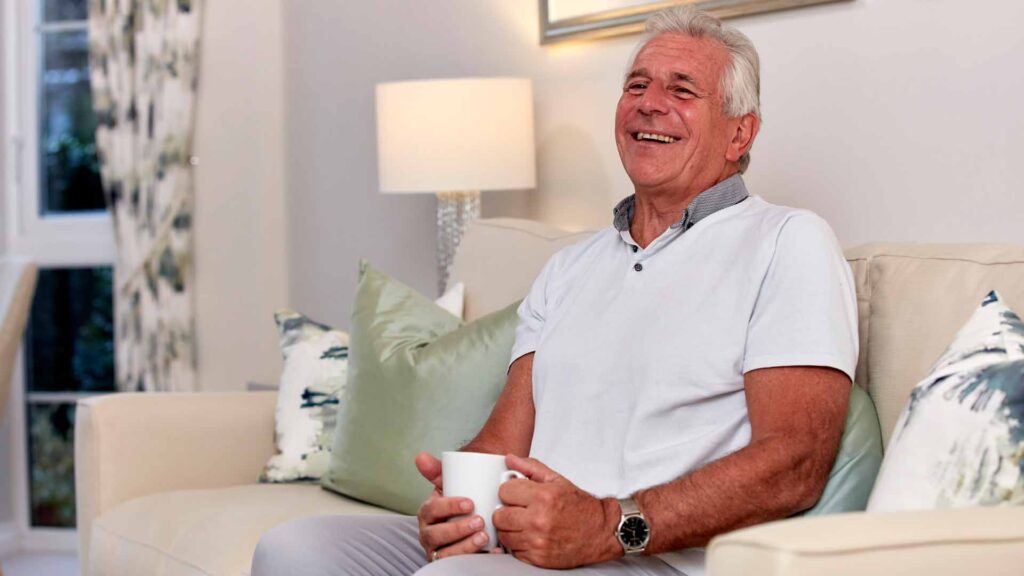
Retirement should be a relaxing period in your life, but for many it can trigger feelings of anxiety and depression. While you might not expect it, anxiety in old age can come from a variety of different places, from the stress of being dependent on others, a feeling of social isolation, or even a concern about future medical emergencies.
Are you or a loved one suffering from anxiety disorder in old age? Don’t panic - there are plenty of ways to manage it! Keep reading to find out how you can start enjoying the stress-free retirement that you deserve.
What are the symptoms of anxiety in old age?
Anxiety symptoms could range from irritability to difficulty sleeping, or even a complete withdrawal from social activity. Anxiety is a problem precisely because it can be easy to overlook for older adults who may have grown up thinking about mental illness as a stigma. You might not think your feelings of anxiousness are serious, but it is vital to learn how to spot the signs before it starts to impact your lifestyle!
Anxiety reducing techniques for older adults
- Establish a comforting routine
- Stay active
- Getting enough sleep
- Focus on your personal relationships
- Breathing exercises
- Get professional support
Establish a comforting routine
Going from the familiar routine of work life to the wide open possibilities of retirement can be a stressful process. Make it easier for yourself by creating a reassuring routine that you can stick to and find comfort in. Find time for your hobbies, meeting up with friends and family, and establish a regular sleep routine. Routines can give your life purpose beyond your work life, giving you a relaxing sense of predictability.
Stay active
As well as keeping your body in tip-top shape, getting active can be very helpful for reducing anxiety. Exercise helps you forget about your worries, as well as releasing feel-good endorphins that lead to much happier days. This doesn’t mean you have to engage in extreme sports or run a marathon. There are loads of low-impact ways that you can stay active, from relaxing nature walks to engaging in activities like yoga or water aerobics.
Breathing exercises
Exercise doesn’t have to be done outdoors - you can practice deep breathing exercises from the comfort of your home! Deep breathing helps you feel more calm by increasing the oxygen supply to your brain, signalling to your nervous system that it is time to relax. It takes practice, but after a bit of experimentation, breathing in to counts of 3 or 6 seconds for a few minutes every day could bring you to a place of peace during an especially rough day.
Getting enough sleep
There aren’t many things that can’t be resolved with a good night's sleep. If you are someone suffering from feelings of anxiety, you might want to pay closer attention to your sleeping habits. Sleep has a two-fold relationship with anxiety - anxiety leads to bad sleep, while bad sleep leads to anxiety!
So what should you do? Get a regular bedtime routine, get into the habit of reading a book before bed, and try to limit the amount of caffeine you have during the day. To reassure yourself even more, get a trusty friend or family member who you can contact if there’s an emergency during the night. Sort out your sleep routine, and a peaceful mind will follow!
Focus on your personal relationships
Loneliness is one of the biggest causes of anxiety in old age - in retirement, you may find that you miss the constant contact of your work colleagues. This makes it vital that you keep in contact with friends and family, while building new relationships in retirement. Make sure to always leave time for your friends, family and visits from your grandchildren, and stay open to making new social connections. Social interaction does wonders for your mental health, directing your energy away from your social anxiety.
Get professional support
If your feelings of anxiety persist, it might be time to get some professional guidance. You might find that your mental health problems are connected to a physical ailment, like a lack of nutrition or another medical issue. Therapy is also a handy option if you want to talk to an unbiased professional about your feelings, and identify the cause of your anxiety.
You can say goodbye to your feelings of anxiety with the safety and security of a Churchill Retirement apartment. With Churchill, you can enjoy peace of mind knowing that we take care of your home and its maintenance whenever you leave. Check out our range of low-maintenance retirement homes here.
